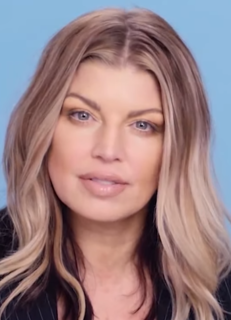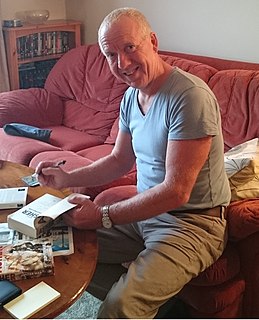A Quote by Paul Auster
I write the paragraph, then I'm crossing out, changing words, trying to improve it. When it seems more or less OK, then I type it up because sometimes it's almost illegible, and if I wait, I might not be able to read it the next day.
Related Quotes
I had a lot of great lakes of ignorance that I was up against, I would write what I knew in almost like islands that were rising up out of the oceans. Then I would take time off and read, sometimes for months, then I would write more of what I knew, and saw what I could see, as much as the story as I could see. And then at a certain point I had to write out what I thought was the plot because it was so hard to keep it all together in my head. And then I started to write in a more linear way.
I don't go to an office, so I write at home. I like to write in the morning, if possible; that's when my mind is freshest. I might write for a couple of hours, and then I head out to have lunch and read the paper. Then I write for a little bit longer if I can, then probably go to the library or make some phone calls. Every day is a little bit different. I'm not highly routinized, so I spend a lot of time wandering around New York City with my laptop in my bag, wondering where I'm going to end up next. It's a fairly idyllic life for someone who likes writing.
It's not possible to advise a young writer because every young writer is so different. You might say, "Read," but a writer can read too much and be paralyzed. Or, "Don't read, don't think, just write," and the result could be a mountain of drivel. If you're going to be a writer you'll probably take a lot of wrong turns and then one day just end up writing something you have to write, then getting it better and better just because you want it to be better, and even when you get old and think, "There must be something else people do," you won't be able to quit.
I keep a journal. I like myself better when I just pour it out. It's easier sometimes, even if you write on a piece of paper and then tear it up, just to vent it out. Because in the past I have sometimes used interviews as therapy, and then I've regretted it because I'm going, "Wait a second, that is not for the world to know. That's for me to know."
Curiously, the balance seems to come when writing is woven into every aspect of my life, like eating or exercising - one flows constantly into the next: I'll wake up and have coffee, read the news, then write a letter or two (always in longhand), then go teach, and after teaching write a bit in a journal - dreams, what I had for breakfast and lunch and why I had it, what's on the iPod, sexual habits, etc. - then read a bit, then work on a real bit of writing...you get the idea.
The idea is to make the script out of a political analysis and then to convey that - sometimes in poetry, sometimes science, sometimes all it takes is a film. The film itself is less and less spectacular because I think very strongly now the more spectacular you are, the more you are absorbed by the things you are trying to destroy.
My work is very dear to me, and certainly I have had all the emotional highs and lows that go with trying to get it to an audience. But I do have some kind of detachment that seems somewhat unusual in my trade. I'm a writer who writes every day. I don't have a period of months where I can't get anything done and I wander around tearing my hair out. When I come back from a book tour, for instance, I might have one day where I sleep late and then check my e-mail, and then go for a walk, and then the next day I'm really itching to get back at writing a story.
When I get started each day, I read through and correct the previous day's 2,000 words, then start on the next. As I reach that figure, I try to simply stop and not go on until reaching a natural break. If you just stop while you know what you're going to write next, it's easier to get going again the next day.
Whenever I teach writing I tell them to never revise as you go. Finish the first draft. This is my writing advice. I can't do that myself. I'm lying to everybody. I write a paragraph, and then I rewrite that paragraph. I want to feel like I'm standing on firm ground before I move on to the next paragraph. Mentally, I have to do that.
The Canon AE1 - a fully manual camera. [My mother] had a 50mm, which is a standard lens, and then I got a 28mm. Then I started a little punk magazine, a zine, when I was 14 or 15 years old. I was shooting my friends skateboarding and it was the beginning of the Macintosh. We wouldn't do layouts on the computer; we would pick the font and then type up a paragraph and then print it out and cut it up and put it in a little mock-up and Xerox it.



































